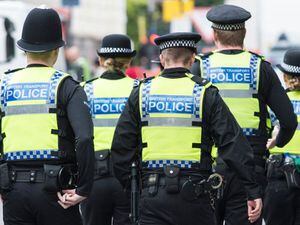Percentage of people not aware of common signs of blood cancer has risen
The Blood Cancer UK charity said the lack of public awareness of the condition is ‘extremely worrying’.

More than half of British adults cannot name any symptom of blood cancer, a survey has suggested as a charity warned some of the signs could be being mistaken for coronavirus.
The percentage of people saying they did not know any symptoms of the third biggest cancer killer in the UK has risen since a similar survey three years ago.
The Blood Cancer UK charity said the lack of public awareness of the condition is “extremely worrying”.
Their poll of 2,035 in Great Britain found that 56% said they did not know any symptoms, up from 52% of people asked the same question in 2018.
The findings, which come a day ahead of the beginning of Blood Cancer Awareness Month, showed that just 1% of those recently polled correctly identified having a fever as a sign of the disease.
Breathlessness was a symptom identified by just 3%, prompting concerns from the charity that this sign, as well as fever and tiredness, could be confused with Covid-19 symptoms and left undiagnosed.
Kate Keightley, head of support services at the charity, said: “Sadly, symptoms such as fatigue, weight loss and night sweats can sometimes be dismissed or downplayed and the result can be devastating.
“During the height of the pandemic, we saw far fewer people being diagnosed with blood cancer, and one of the reasons for this could be that some of the symptoms of blood cancer are easily mistaken for Covid.
“It’s extremely worrying that public awareness that these could be signs of blood cancer continues to be so low.”
She urged anyone who thinks they have symptoms that cannot be explained and are persistent to “urgently” make an appointment with their GP.
The charity said blood cancer symptoms can be varied and often very vague and include persistent and unexplained tiredness, unexplained weight loss, unexplained bruising and/or bleeding, persistent infection, breathlessness, drenching night sweats, lumps or swellings in the neck, head, groin or stomach, and bone or joint pain.





